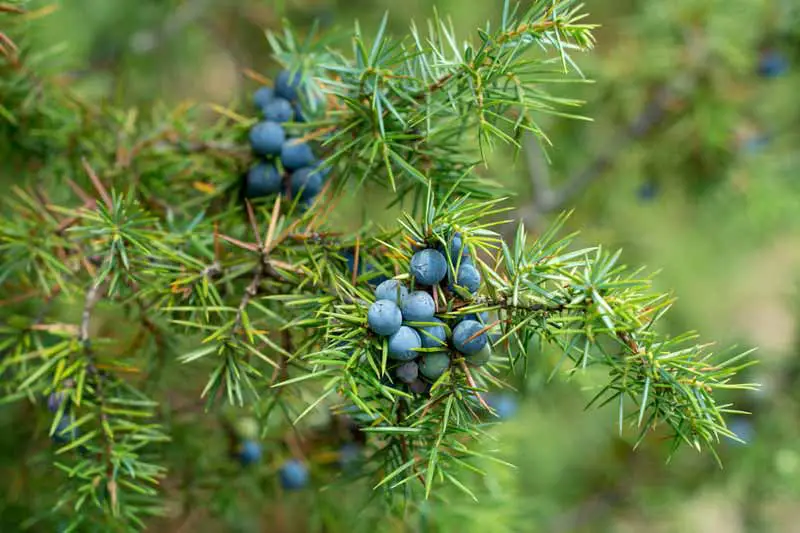Many people don’t know whether or not juniper is poisonous to cats. Some people believe that juniper is poisonous to cats, while other people believe that it isn’t. But what’s the truth?
No, juniper berries are not poisonous or toxic to cats, but if your cat eats juniper berries, they may experience gastrointestinal upset, including vomiting and diarrhea.
For these reasons many cat owners think that juniper berries are poisonous, but they’re actually not. If you have a cat and you’re worried about them eating juniper berries, you can always contact your veterinarian for more information.
What are the symptoms juniper berry poisoning in a cat?
Juniper berries are not poisonous but may cause vomiting if a cat eats the berries, branches or leaves of the juniper plant.
Symptoms of a cat eating to many juniper berries may include lethargy, vomiting, diarrhea and increased thirst.
Most cases of juniper berry poisoning in cats are mild, and the cat will recover without any treatment.
However, if a large amount of berries have been eaten you should keep a close eye on your cat and contact your veterinarian if any symptoms persist.
Usually no treatment is necessary, but if your cat is showing signs of dehydration, such as increased thirst or lethargy, your veterinarian may recommend fluids to help prevent dehydration.
If you think your cat has eaten juniper berries, watch for symptoms and contact your veterinarian if any persist. Most cases of juniper berry poisoning are mild and your cat will recover without any treatment.
However, if a large amount of berries have been eaten, it’s important to keep a close eye on your cat and seek professional medical help if needed.
Dehydration is the most serious concern in cases of juniper berry poisoning, so be sure to monitor your cat for signs of dehydration and contact your vet if they occur. Treatment for dehydration may include fluids given intravenously (by IV) or subcutaneously (under the skin).
It is best to keep your cat away from juniper plants to prevent them from eating the berries and becoming ill.
How to treat a cat that has been poisoned by juniper?
If a cat consumes a large amount of juniper berries, they may experience vomiting and diarrhea. If this occurs, call your veterinarian.
Things you can do yourself include:
- If your cat is vomiting, withhold food and water for 8-12 hours. After the initial period, offer small frequent meals of boiled chicken or turkey and white rice.
- If your cat has diarrhea, withhold food and water for 12-24 hours. After the initial period, offer small frequent meals of boiled chicken or turkey and white rice.
- Give your cat plenty of fresh water to drink.
- Monitor your cat’s stools for any signs of blood or mucus.
- Call your veterinarian if your cat’s condition does not improve or if you have any concerns.
If you see your vet the treatment will likely be supportive care. Withholding food and water for a period of time may help to settle the stomach.
Boiled chicken or turkey and white rice can be offered after the initial period. Fresh water should be available at all times.
Monitor your cat’s stools for any signs of blood or mucus. Call your veterinarian if your cat’s condition does not improve or if you have any concerns.
It should not be anything to be particularly concerned about, but it is better to be safe than sorry when it comes to your cat’s health. If you have any concerns, please call your veterinarian.
Prevention is better than cure – tips for keeping your cat safe from juniper poisoning
The best way to prevent your cat from getting sick from juniper poisoning is to keep them away from the plants.
There are several ways you can keep your cat safe from juniper poisoning:
- Do not plant juniper in your garden unless it is in a pot that your cat cannot access.
- If you have a juniper plant in your home, make sure it is out of reach of your cat.
- If you are going on a hike or walk in an area where there are juniper plants, keep your cat on a leash.
- Be aware of the signs and symptoms of juniper poisoning in cats so that you can seek medical help if necessary.
Symptoms of juniper poisoning include vomiting and diarrhea.
By keep your cat away from juniper plants and being aware of the signs and symptoms of poisoning, you can help to keep your cat safe and healthy.

